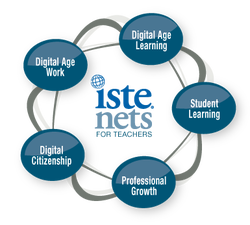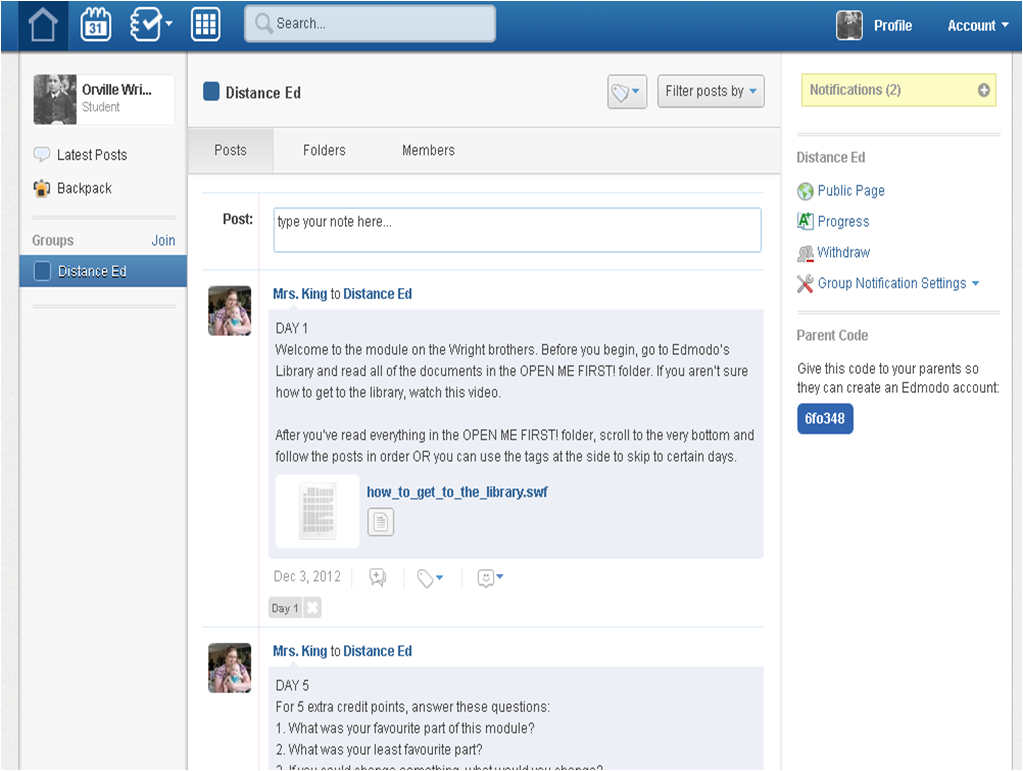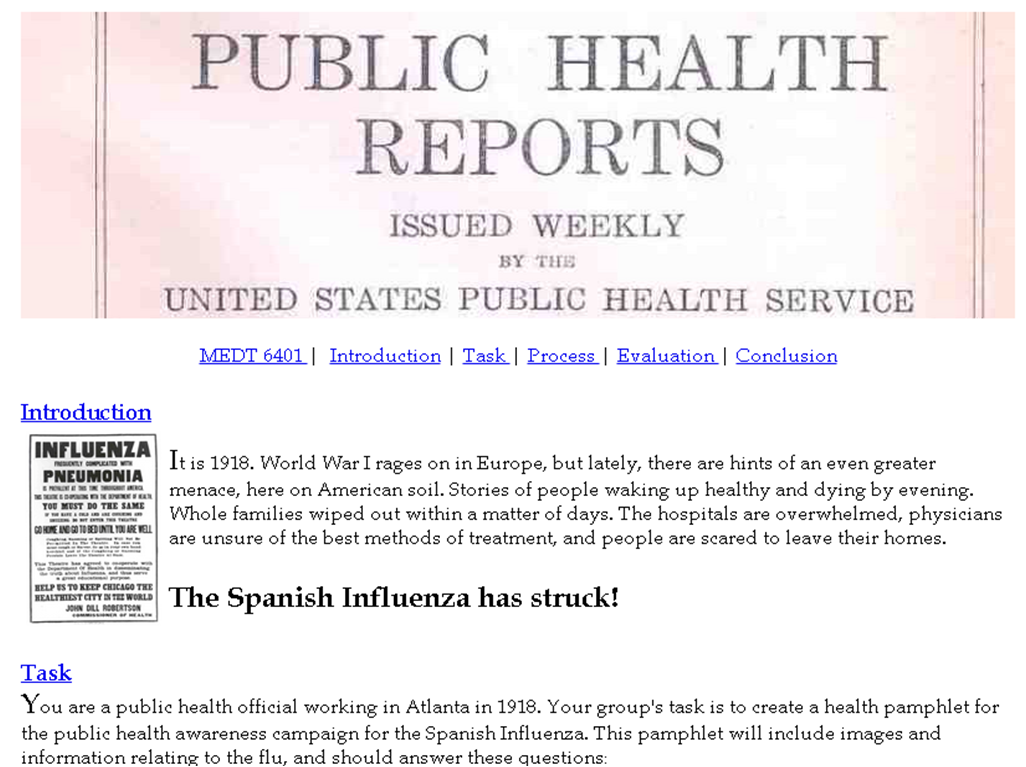2. Design and Develop Digital Age Learning Experiences and Assessments

Teachers design, develop, and evaluate authentic learning experiences and assessment incorporating contemporary tools and resources to maximize content learning in context and to develop the knowledge, skills, and attitudes identified in the NETS·S.
a. Design or adapt relevant learning experiences that incorporate digital tools and resources to promote student learning and creativity.
b. Develop technology-enriched learning environments that enable all students to pursue their individual curiosities and become active participants in setting their own educational goals, managing their own learning, and assessing their own progress
c. Customize and personalize learning activities to address students’ diverse learning styles, working strategies, and abilities using digital tools and resources
d. Provide students with multiple and varied formative and summative assessments aligned with content and technology standards and use resulting data to inform learning and teaching
a. Design or adapt relevant learning experiences that incorporate digital tools and resources to promote student learning and creativity.
b. Develop technology-enriched learning environments that enable all students to pursue their individual curiosities and become active participants in setting their own educational goals, managing their own learning, and assessing their own progress
c. Customize and personalize learning activities to address students’ diverse learning styles, working strategies, and abilities using digital tools and resources
d. Provide students with multiple and varied formative and summative assessments aligned with content and technology standards and use resulting data to inform learning and teaching
Artifact 1: Edmodo Distance Education Module
|
EdmodoLogin: wrightbrothers123
password: flying Please note that the Edmodo platform design changed after the competition on my project, and as such some of the tutorial videos I included on using Edmodo are no longer relevant. For this project I created a week-long distance education module to introduce students to the life and accomplishments of Orville and Wilbur Wright. Within the module, students must engage in discussion questions, answer questions based on web research, create a Prezi using these facts and pictures, and take a test. Students are assessed on their discussion input, worksheet and Prezi, and the test. Materials provided to the student include a syllabus, guidelines for discussion, a rubric and an example for the Prezi, and a list of website resources. I also included an option (discussion question worth bonus points) for students to leave feedback in order to improve the course. |
Artifact 2: 1918 Influenza Webquest
|
For this project I created a webquest for students to learn more about the Spanish Influenza outbreak. During the webquest, students work collaboratively to explore a variety of web pages to answer a list of questions, find images (cited correctly), and use Microsoft Publisher to create a mock public health pamphlet with what they learned. Students are also asked to reflect as a group about what they learned. The goal of this webquest is to not only acquaint students with the facts of the outbreak, but to encourage them to step outside their modern views of medicine and imagine the mentality of someone living in 1918 and frame their end-product pamphlet accordingly.
|
Reflections
In both the Wright brothers distance education module and the influenza webquest I attempted to create learning experiences that incorporated a variety of technology, promoted creative end products, and, most importantly, encouraged students to be active learners.
For the distance education module, which is geared towards fifth graders, students must use the digital tools Prezi and Edmodo, both of which they may not be familiar with, which is why I created customized how-to videos. For this module – and distance education in general – students must “become active participants in . . . managing their own learning, and assessing their own progress.” While the activities are broken up into days and have specific due dates, the asynchronous nature means that students are tasked with managing their time and progress without the benefit of a teacher standing by. I included a discussion question on day 3 to encourage students to reflect on their progress and a link to a web quiz for a self-assessment of their learning thus far. This module has a wide variety of assessments, which allows me as the teacher to gain a better understanding of what my students do and do not understand and also gives students a variety of ways of expressing themselves. The webquest, aimed at older students, is a more succinct version of the Edmodo module, encompassing a few days instead of a full week, although the research is more intensive and the end product more complex with less guidance, although with a much greater degree of freedom.
For the distance education module, which is geared towards fifth graders, students must use the digital tools Prezi and Edmodo, both of which they may not be familiar with, which is why I created customized how-to videos. For this module – and distance education in general – students must “become active participants in . . . managing their own learning, and assessing their own progress.” While the activities are broken up into days and have specific due dates, the asynchronous nature means that students are tasked with managing their time and progress without the benefit of a teacher standing by. I included a discussion question on day 3 to encourage students to reflect on their progress and a link to a web quiz for a self-assessment of their learning thus far. This module has a wide variety of assessments, which allows me as the teacher to gain a better understanding of what my students do and do not understand and also gives students a variety of ways of expressing themselves. The webquest, aimed at older students, is a more succinct version of the Edmodo module, encompassing a few days instead of a full week, although the research is more intensive and the end product more complex with less guidance, although with a much greater degree of freedom.


